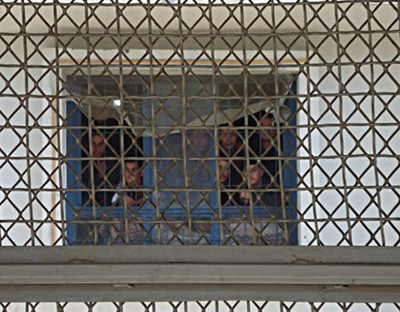By Mina Habib
The 15-year-old refused to give his name, his eyes cast down as he sat in an empty room in the children‘s correction centre in Kabul.
Slowly, he began to open up and tell his story. An orphan, he left his home province of Sar-e Pol a year ago and came to the Afghan city to study at an Islamic school. One day while out in the city, he saw a man struggling to carry two bags of groceries.
“I went to help him, and I took one of the bags and carried it to his home,” he said. “The man invited me to come inside for lunch since I’d helped him, but when I entered the room, he attacked me sexually. I jumped out of the window to escape, but he came outside and shouted out that I was a thief. The local police arrested me for robbery. They wouldn’t listen to me…. I’ve been in prison for seven months, and I don’t know what I’ve done wrong.”
As in other societies, sexual abuse of children is a highly sensitive issue in Afghanistan. The judicial system is not set up to cope, and the victims often end up being placed in juvenile detention centres under the catch-all terminology of “moral crime”, while their adult assailants go unpunished.
The Afghanistan Independent Human Rights Commission, AIHRC, lists numerous recorded cases of sexual abuse of girls and boys, but it underlines that many others are never reported because of concerns about shame and honour, and because people have little faith in the justice system.
“Systemic corruption, weak rule of law, and impunity lead to the offenders going unpunished, while the victims are punished,” Belal Sediqi, head of children’s affairs at the AIHRC, told IWPR.

Juvenile detention centre in Kabul. (Photo: Mina Habib)
Accurate information about numbers is hard to get, since some official agencies refuse to provide data. Staff at Afghanistan’s first-level children’s court told IWPR that they could not give the media any information about the sexual abuse of minors. It is also difficult to gain access to children held in juvenile detention.
Inconsistencies in Afghanistan’s laws impede justice. Child marriage is common in Afghanistan, and there is no age of consent. And while a 2009 law on violence against women made rape a criminal offence, it does not apply to male victims. The crime of “pederasty”, sex between a man and a boy, carries a prison sentence of up to 15 years.
More often than not, the charge of “moral crimes” – which covers all forms of sexual between unmarried individuals – is applied in cases where a child is assaulted.
Since victims thus become “culpable”, Sediqi says many of them – boys and girls alike – are simply locked up in the juvenile detention centre in Kabul.
Aziza Adalatkhwah, director of the detention centre, denied that any victims of sexual assault were being held there.
“This claim by the human rights commission is a lie,“ she said. “The victims of such incidents are not imprisoned.”
At the same time, Adalatkhwah acknowledged that some of the minors at the centre were being held for “moral crimes”.
The New York-based advocacy group Human Rights Watch issued a statement calling for government action following the conviction of a minor on “moral crimes” charges, and other similar cases.
“When a man has sex with a 13-year-old child, the child is a victim of rape, not a criminal offender,” the group’s Asia director Brad Adams said.
Keramatullah Sediqi, director of research at the Ministry of Hajj and Religious Affairs, believes Islamic law offers effective deterrents.
He said the abuser should be put in a sack and thrown down a hillside. “If that was done, I am sure no one else would dare do such a thing,” he said.
Sediqi says cases of sexual assaults on minors rarely reach the stage where any kind of law can be applied. While some perpetrators are arrested, he argues that they do not receive the punishment they deserve. He cites a recent case where a 13-year-old boy was allegedly abused by a member of the Afghan National Army in February. No action was taken against the soldier.
“The [human rights] commission exerts pressure on investigative agencies to prosecute those responsible in such cases, but we remain unsatisfied with the results,” he added.
Lal Gul, the director of the Human Rights Organisation of Afghanistan, said that just as in other criminal cases, those accused of sexual assaults on minors can get away with it if they have enough influence.
“There is massive corruption in state institutions, particularly in the courts,” he said. “Warlords and the supporters of senior government figures are immune from the law. Unless the law is applied equally to everybody, we must assume that injustices of this kind will only increase.”
Mina Habib is an IWPR-trained reporter in Kabul.



